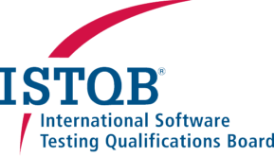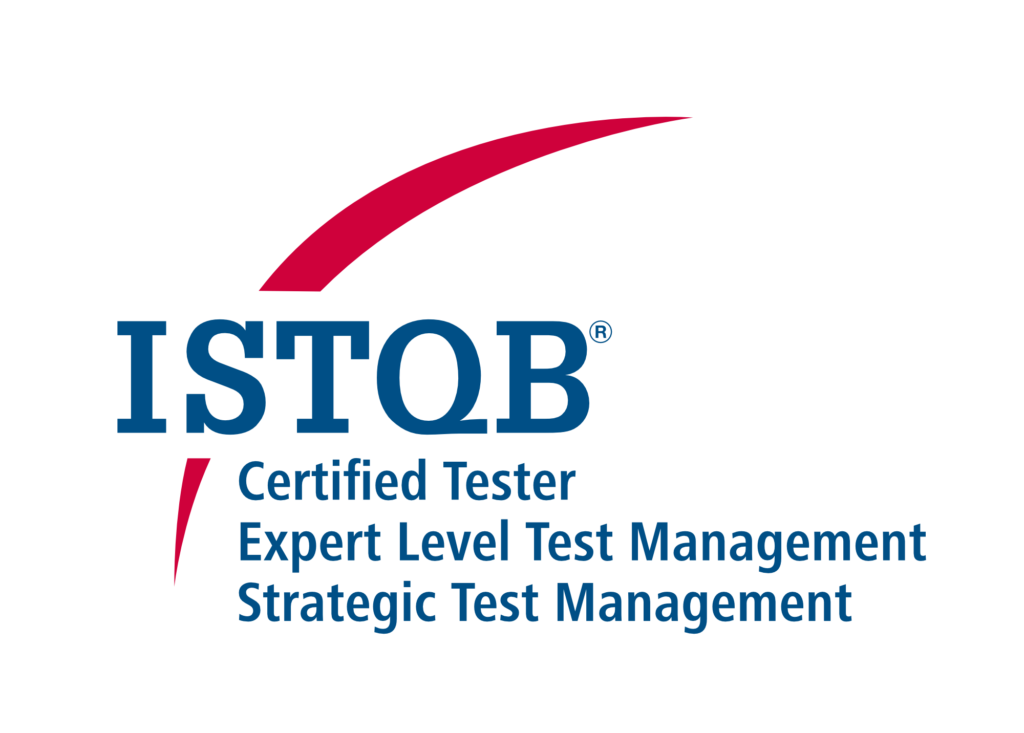Certified Tester Expert Level Test Management Strategic Test Management (CTEL-TM-SM)
The ISTQB Expert Level Test Management (CTEL-TM) certification (Managing Testing, Testers, and Test Stakeholders) comprises 3 parts: ‘Strategic Test Management’, ‘Operational Test Management’, and ‘Managing the Test Team’. Note that separate certification exams are provided for each part, and all three parts must be achieved to gain full certification in CTEL-TM. An Expert Level Certificate is valid for 7 years.
Overview
The ISTQB® CTEL-TM–Strategic Management content within the CTEL-Test Management syllabus considers the purpose of testing or the test mission, and the relation between the test policy, the test strategy, and the test objectives. It addresses the effectiveness, efficiency, and satisfaction metrics for the test policy objectives. Integrating tools across the organization and testing as part of a larger set of quality management activities necessary to deliver quality software products and services are included, as well as the management of external relationships, most especially the merging of test strategies with third party organizations. Part 1 of the CTEL-TM also looks at the test management considerations for different project lifecycle models.
For Part 2 of the CTEL-TM certification, refer to CTEL-TM-OTM and for Part 3, refer to CTEL-TM-MTT. All 3 Parts are required to be CTEL-TM certified.
Audience
The Expert Level certification is aimed at those who have already achieved an advanced point in their careers in software testing and wish to develop further their expertise in a specific area.
To obtain Expert Level certification, candidates must have:
- the Certified Tester Foundation Level (CTFL) certificate
- the Advanced Level Test Manager (CTAL-TM) certificate
- passed the Expert Level Exam
- at least 5 years of practical testing experience
- at least 2 years of industry experience in the specific Expert Level topic
Content
ISTQB® Certified Tester Expert Level – Test Managment (CTEL-TM-SM) Strategic Test Management
Test Missions, Policies, Strategies and Goals
Missions, Policies, and Metrics of Success
Test Strategies
Alignment of Test Policy and Test Strategy with the Organization
Managing External relationships
Merging Test Strategies
Verifying Quality
Managing Across the Organization
Creating and Building Relationships
Advocating quality Activities Across the Organization
Integrating Tools Across the Organization
Testing Considerations for Domain and Project
Factors
Test Management
Considerations for Lifecycle Models
Managing partial Lifecycle Project
Evaluating Effectiveness and Efficiency
Effectiveness, Efficiency and Satisfaction Metrics for the Test Process
Effectiveness, Efficiency and Satisfaction Metrics for the Test Policy Objectives
Exam Structure
- No. of Questions: ??
- Passing Score: ??
- Total Points: ??
- Exam Length (mins): ??
Business Outcomes
The expert test manager is able to perform each of the following tasks:
- Lead the test management within an organization, project or program to identify and manage critical success factors with management commitment at CEO/Board level;
- Take appropriate business-driven decisions on a test management strategy and implement organization wide commitment and compliance based on quality KPIs;
- Assess the current status of the test management, propose step-wise improvements and show how these are linked to achieving business goals within the organizational context of test management (organization or project/program);
- Set up a strategic policy for improving the test management and the testing, and implement that policy in an organization;
- Analyze specific problems with the test management and its alignment with other roles or management areas in the project/organization, and propose effective solutions;
- Create a master test plan with matching governance dashboard to meet or exceed the business objectives of the organization or a project/program;
- Develop innovative concepts for test management (project) organizations which include required roles, skills, methodologies (tools) and organizational structure;
- Establish a standard process for implementing test management in an organization (project/program) with standardized delivery based on quality KPIs;
- Lead an organization to improve the test management process and manage the introduction of changes;
- Understand and effectively manage the human issues associated with test-project management and implement necessary changes.


